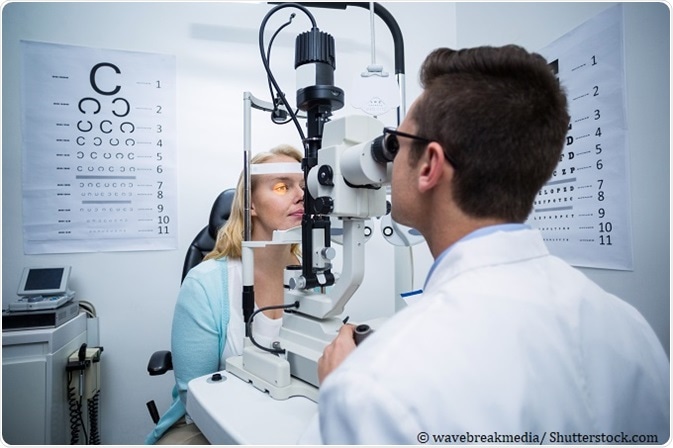A Comprehensive Guide to Eye Surgery Treatments Available at Your Optometrist's Technique
In the realm of ophthalmology, the improvements in eye surgery therapies have actually opened up a globe of possibilities for those looking for improved vision and eye wellness. From the well-known LASIK eye surgical treatment to the much less familiar Corneal Transplants, the selection of treatments offered at your ophthalmologist's technique can attend to a selection of vision-related issues. Recognizing the nuances of each therapy alternative and how they can possibly transform your vision needs a closer look at the outcomes and ins and outs connected with these procedures. Allow's check out the varied landscape of eye surgery therapies that might potentially boost your visual skill and quality of life.
LASIK Eye Surgical Treatment
When considering vision correction treatments, LASIK eye surgical procedure becomes a famous option for individuals seeking lasting renovation in their vision. LASIK, which means Laser-Assisted in Situ Keratomileusis, is a popular refractive surgery that aims to correct common vision troubles such as nearsightedness, astigmatism, and farsightedness. This procedure involves using a laser to reshape the cornea, allowing light to be properly concentrated onto the retina, causing more clear vision without the demand for glasses or contact lenses.
One of the crucial advantages of LASIK eye surgical procedure is its fairly pain-free and fast nature. The treatment itself usually takes just about 15 minutes per eye, with most patients experiencing enhanced vision nearly right away. Additionally, the healing time for LASIK is relatively brief, with numerous people able to go back to their regular activities within a day or more.

PRK (Photorefractive Keratectomy)
FIRST SENTENCE:
An additional sophisticated vision adjustment procedure similar to LASIK is PRK (Photorefractive Keratectomy), using reliable options for individuals looking for options to traditional glasses or call lenses. PRK is a surgery that improves the cornea making use of an excimer laser to deal with refractive mistakes such as nearsightedness (nearsightedness), hyperopia (farsightedness), and astigmatism. Unlike LASIK, PRK does not involve producing a flap on the cornea; rather, the external layer of the cornea is carefully gotten rid of before the laser therapy. This makes PRK an ideal alternative for individuals with slim corneas or those entailed in activities where the risk of eye trauma is higher.
The recovery duration for PRK is longer compared to LASIK, as the external layer of the cornea needs time to restore. Clients might experience discomfort and fuzzy vision during the preliminary recovery phase, yet vision gradually enhances over several weeks. Your ophthalmologist will provide in-depth post-operative care directions to ensure a smooth healing procedure and optimal aesthetic outcomes.
Cataract Surgical Treatment
Cataract surgery, a typical procedure done by ophthalmologists, includes eliminating the gloomy lens within the eye and changing it with a clear synthetic lens implant to bring back vision quality. Cataracts take place when the natural lens of the eye becomes cloudy, bring about blurred vision and difficulty seeing clearly. Throughout cataract surgical procedure, the ophthalmologist makes a small cut in the eye and makes use of ultrasound innovation to damage up the over cast lens, great site which is after that delicately sucked out. As soon as the cataract is gotten rid learn the facts here now of, the artificial lens, called an intraocular lens (IOL), is placed to change the natural lens's function. This IOL aids to focus light onto the retina, boosting vision. Cataract surgical treatment is normally performed on an outpatient basis and is understood for its high success price in enhancing vision and high quality of life for patients. It is important to consult with your optometrist to figure out if cataract surgery is the right alternative for you based on your specific eye health and wellness needs.
Corneal Transplants
Corneal transplants, also known as corneal grafts, are procedures that include changing damaged or unhealthy corneal tissue with healthy and balanced donor cells to enhance vision and reduce corneal problems. This procedure is normally suggested for individuals with corneal scarring, thinning, or various other corneal conditions that can not be dealt with effectively with other approaches such as medication or get in touch with lenses.
Throughout a corneal transplant, the ophthalmologist eliminates the main portion of the damaged cornea and changes it with a donor cornea. This contributor cells is thoroughly chosen, examined, and kept to make certain compatibility and decrease the threat of rejection. Corneal transplants can restore vision, minimize discomfort or pain, and improve the appearance of the eye.
There are various types of corneal transplants, consisting of full-thickness transplants (penetrating keratoplasty) and partial-thickness transplants (such as endothelial keratoplasty or former lamellar keratoplasty), with the choice depending upon the particular problem being treated. After the surgical treatment, people require close post-operative treatment to keep track of recovery and avoid complications.
Retinal Detachment Surgery
Complying with effective corneal transplants, an additional important eye surgery procedure that might be essential for sure people is retinal detachment surgical procedure, a delicate operation aimed at restoring the retina's proper position click here now to preserve vision and avoid further problems (eye doctors panama city). Retinal detachment takes place when the retina, the slim layer of cells at the rear of the eye liable for recording light and sending out aesthetic signals to the mind, draws away from its regular placement. This splitting up can lead to vision loss otherwise without delay resolved via surgical procedure
Throughout retinal detachment surgical treatment, the eye doctor functions to reattach the retina to the back of the eye. The goal of the surgical treatment is to stop vision loss and bring back or enhance vision if feasible.
Final Thought

In the world of ophthalmology, the advancements in eye surgery treatments have actually opened up a globe of opportunities for those looking for enhanced vision and eye health. From the commonly known LASIK eye surgical treatment to the less familiar Corneal Transplants, the variety of treatments readily available at your eye physician's technique can deal with a selection of vision-related problems. It is vital to consult with your eye doctor to determine if cataract surgery is the right option for you based on your specific eye health needs.
Complying with successful corneal transplants, another crucial eye surgical treatment treatment that might be needed for specific people is retinal detachment surgery, a delicate procedure aimed at recovering the retina's correct position to preserve vision and prevent further problems.In final thought, there are various eye surgical procedure treatments offered at your eye physician's practice, including LASIK, PRK, cataract surgical procedure, corneal transplants, and retinal detachment surgical treatment.